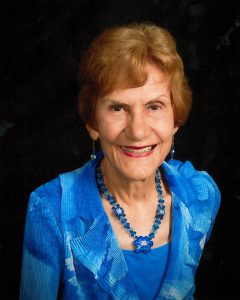
Genevieve Lowry Cole has been blazing trails her entire life.
She’s climbed Kilimanjaro, among other great peaks around the world.
She’s reared three amazing sons, two of whom are Stanford University graduates and the third from the University of Colorado-Boulder. They have rewarding careers and beautiful families — the greatest thing a mother could wish for her children, she said.
She is the first American Indian woman to graduate from the University of North Carolina at Chapel Hill.
She did so in 1954 in the male-dominated field of medical technology at a time when women weren’t particularly well represented in the student body and American Indians by law weren’t even allowed to apply.
But that didn’t deter her. Born and raised a member of the Lumbee Tribe in Pembroke, North Carolina, she attended segregated Indian schools and went on to graduate at the top of her class. She went to Pfeiffer University (the Indian school at the time) and earned an associate’s degree so she could enroll in a medical technology program.
“My dream was to become a scientist so I could help people,” she said. So she sought the counsel of a UNC admissions officer at the time, and he encouraged her to apply. “He knew that there would be no other reason other than I was an Indian to not be accepted, so he just ignored that fact and told me to apply, and I did.”
She was accepted, and excelled. After graduating from UNC in 1954, Cole spent 57 years working in the health care field including 52 working in North Carolina. She served as the UNC Hospitals supervisor of clinical hematology, and went on to posts at the University of California Medical Center in San Francisco, Duke University Hospital, and finally in the N.C. State Laboratory of Public Health in Raleigh, North Carolina, where she was the branch head of mycobacteriology, mycology, and parasitology laboratories. She retired in 2012.
When Cole describes her UNC experience, it sounds much like that of most other students at the time. “I was treated like most everyone else on campus, nothing special,” she said. “I was not shy about my background, but I was reserved about introducing myself as an Indian unless they asked. I think I was more interested in showing my educational background. I was more academically associated rather than socially.”
Now serving on the UNC Board of Visitors, Cole also supports key areas on campus, including the American Indian Center and the Medical Foundation. Though she didn’t start out to create a legacy at Carolina, she is proud to represent Lumbee Nation and pave the way for future generations to thrive. “I had no idea when I was here that I would be the first one [female American Indian graduate],” she said. “It has made me appreciate the goodness that can come to somebody from a situation like I grew up in. It has made me very proud to be an American Indian, because I never visualized that I would be the first pioneer.”

